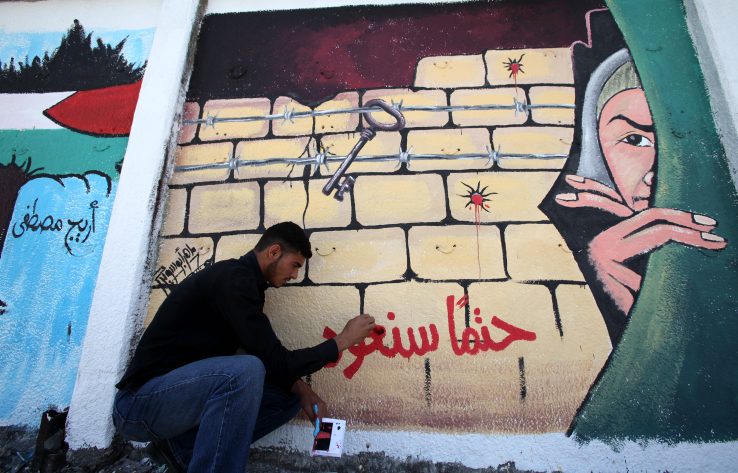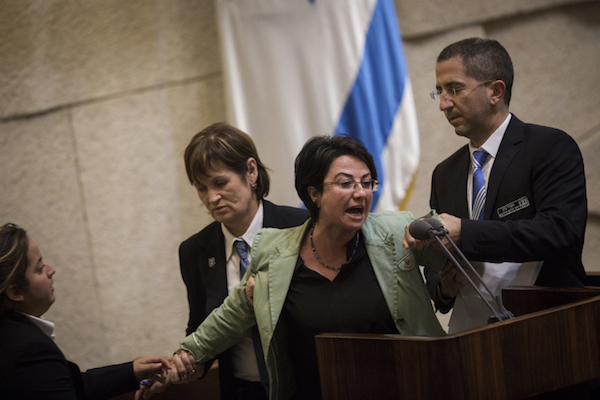The absurd arrest of a Palestinian worker who was mistranslated by the police is a reminder that Arabic has been turned into a tool to oppress the native population in this country.

Israelis read Sunday morning that Israeli police had mistakenly arrested a Palestinian worker after relying on a Facebook translation of a post he had written a week earlier. The worker had uploaded a photo of himself standing next to a bulldozer with the caption, “good morning,” which the police then misinterpreted to say, “attack them,” leading to his arrest for incitement to violence.
The incident exemplifies something about the Israeli complex vis-a-vis the Arabic language. One may wonder how the hell it is possible that a language used by nearly half the people living in this land, which is spoken by millions across the region, has become so esoteric and exotic to us to the point that we must resort to Facebook’s poor translation software in order to understand it. Beyond that, one can see how the incident is the result of the state’s attempt to empty Arabic of its power to connect people — as a language that contains its own history, culture, and memory — and turn it into something entirely different.
In order to understand this process, we only need to remember a law that was recently proposed by members of the Israeli government to annul the status of Arabic as an official language in Israel. The law, it was said, would “promote social cohesion in the State of Israel and build a collective identity needed for building mutual trust and maintaining the principles of democracy.”
The “social cohesion” mentioned by the MKs who wrote the law begins with stripping away the language from 20 percent of Israel’s population (and millions more living under its direct and indirect rule), and turning it into an obstacle of sorts. Arabic, it turns out, is standing in the way of our social cohesion.

But the truly interesting thing is that those who proposed the law are not trying to make Arabic disappear: they just want to strip it of its essence and turn it into something else. When Defense Minister Avigdor Liberman takes pride in being the only one who “really understands Arabic,” he treats the language as a simple matter of power and control. Arabic becomes a fist or a whip. When Culture Minister Miri Regev attacks MK Haneen Zoabi on the Knesset podium in broken Arabic, she turns Arabic into a tool of humiliation. As such, Arabic is first stripped from its native speakers before it is taken away from second and third generation Mizrahi Jews — such as Regev. Only then is it adopted by its enemies as a means of oppression.
At first glance, one could have understood the logic behind the law as an attempt to include the Arab public in that same vaunted “social cohesion,” which Arabs seem to avoid, ostensibly because they lack a grasp on Hebrew. But as usual, this is an inter-Jewish story; Arabic is not an obstacle that prevents the inclusion of the Arab public in Israel’s imagined cohesion, rather it stands in the way of the Jewish ethnocracy’s total control over language — both concrete and symbolic.
Any shards of Arabic that survive outside of that context are a threat that the Israeli hegemony no longer understands, if it ever wanted to in the first place. This is true not only when it comes to a poem written by a young Palestinian poet, which required the interpretation of numerous experts on Arabic literature, or a satirical Facebook status by a Bedouin journalist that was wrongly interpreted by the authorities. Nowadays, we have a hard time understanding a simple “good morning.”
This post was first published in Hebrew on Local Call. Read it here.

